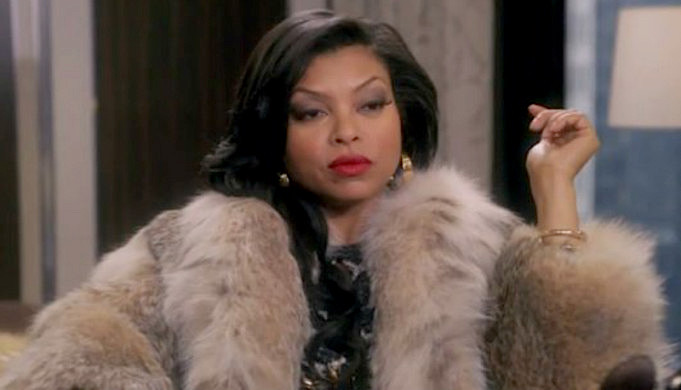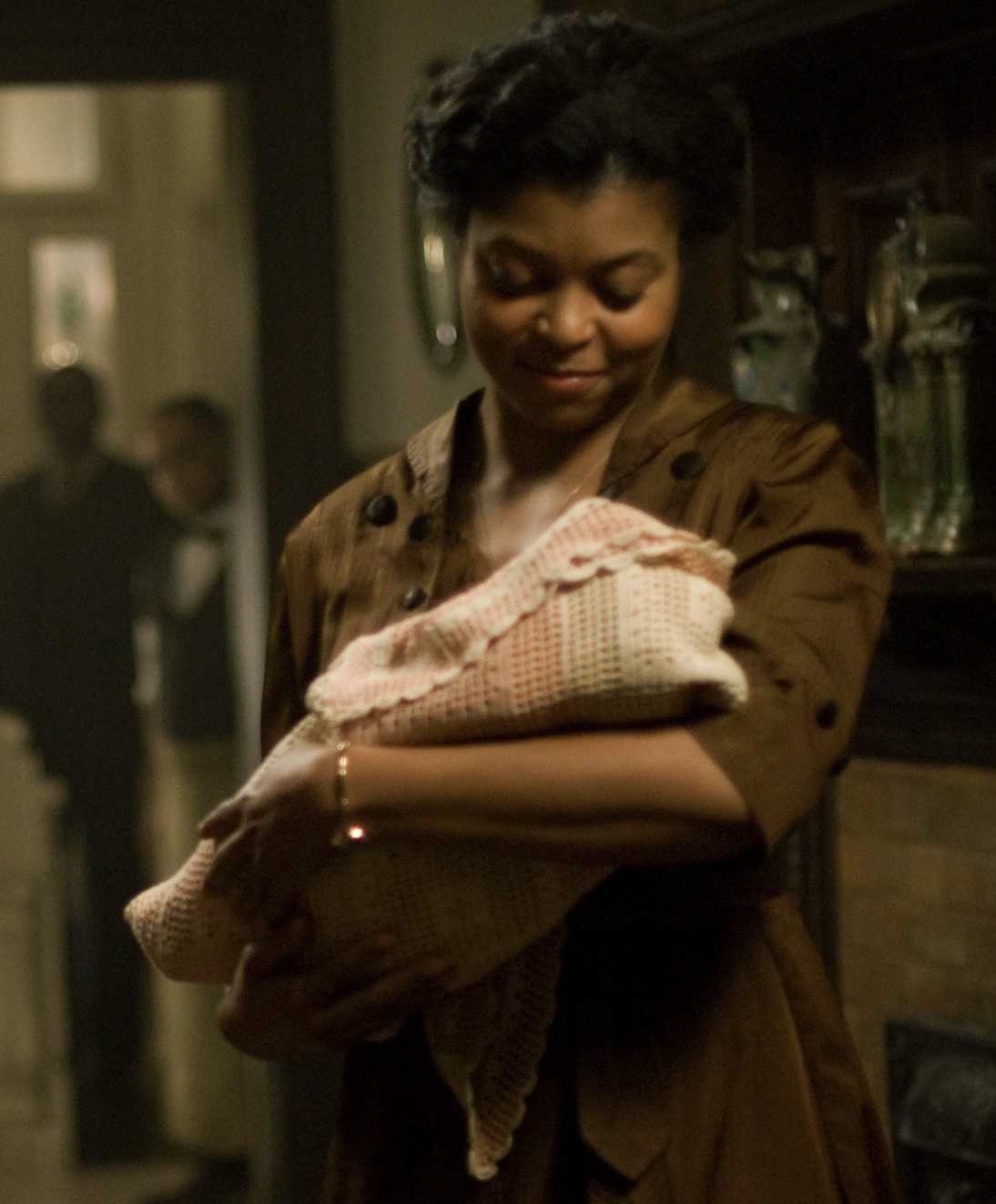Our Oscary spotlight on Black History Month continues with Matthew Eng on the currently very hot Taraji P. Henson
It’s one thing to nab yourself a lead role on a juicy, mega-hit network drama with a mind-blowing, week-to-week ratings surge. But to be the undeniable breakout star of said TV show, to act circles around your leading man and everyone else on screen, to inspire tepid critics to unanimously single out your performance, to remain the number one (some would say only) reason to tune in, and to snatch yourself an actual catchphrase within the pilot? That’s a whole other heap of achievements entirely.

Taraji P. Henson is having a great year, which is an especially exciting thing to write, because, to my mind, few working actresses (much less working actresses of color) deserve it more. Henson’s such a reliably loose, shrewd, and engrossing performer that she carries a certain kind of built-in assurance for audiences: no matter the part or project, you can be sure that at least one professional has showed up to work and you better believe she will be giving it her absolute all. This kind of noticeable, on-camera go-for-broke-ness can often be applied for better and worse, but Taraji’s almost certainly in the former camp; she knows when to reign it in and how to modulate this quality from scene-to-scene and film-to-film, while remaining an exciting and involving on-screen presence.
 It’s strange then and somewhat disappointing that the performance for which Henson received her first and (so far) only Oscar nomination as Best Supporting Actress for David Fincher’s The Curious Case of Benjamin Button is, in many ways, one of her most boring. Had Oscar voters not seen through the fraudulent "supporting" campaign for Kate Winslet, Taraji might not have been there at all for this true-blue supporting performance...
It’s strange then and somewhat disappointing that the performance for which Henson received her first and (so far) only Oscar nomination as Best Supporting Actress for David Fincher’s The Curious Case of Benjamin Button is, in many ways, one of her most boring. Had Oscar voters not seen through the fraudulent "supporting" campaign for Kate Winslet, Taraji might not have been there at all for this true-blue supporting performance...
But nonetheless the film could’ve used her to better, more engaging effect and, truthfully, could’ve used her more, period. Henson’s Benjamin Button turn isn’t a particularly weak performance by any stretch, but based on sheer memorability, it pales considerably when paired alongside past supporting efforts by this same actress and ultimately can’t hold a candle next to nominees as inspired as Vicky Cristina Barcelona champ Penélope Cruz, Doubt’s Viola Davis, and especially The Wrestler’s Marisa Tomei. As Queenie, the adoptive, adoring mama to Brad Pitt’s Gumpish, backwards-aging title character, Henson is required to embody little else besides the intrinsic, unprejudiced love of a mother-cum-black helpmeet. It’s a role that perpetually lives in Oscar’s wheelhouse, but there’s nothing new or exceptionally noteworthy about Henson’s interpretation, which should’ve been better aided by a director who, frankly, could stand to pay a little more attention to performance in general.
Henson has some lovely, early chemistry with Mahershala Ali as her live-in companion and strikes a fine, unshowy balance between loving Benjamin while also desiring a child of her own lineage. But, quite simply, there’s just not enough of Henson amid all the sepia-soaked period locales and digitalized Brad dolls. And when Henson is there, it’s often to briefly scold Benjamin for largely being a dimwit or to beam at him with all the care and goodness her soul can possibly hold, and she’s the first one to tell a newborn Benjamin that “You never know what’s coming for you,” the film’s central line of unprecedented wisdom that was all but written for the Oscar montage. Queenie is clearly written as the heart of Benjamin Button (i.e. Mrs. Gump as a black woman) but she’s a scarcely-seen heart all the same, and if Henson’s main task in the film can be boiled down to being loved and missed, then she succeeds solely on the basis that it’s damn near impossible not to love and miss Taraji P. Henson. But surely there are more challenging assignments for a performer this adept?

For Prime Henson, the place to begin is, of course, her breakout role in Craig Brewer’s Hustle and Flow, where she’s emotionally vivid and heartbreakingly hopeful as Shug, a pregnant prostitute in love with Terrence Howard’s musically ambitious, Memphis pimp. It’s the performance that should’ve netted Henson a first Oscar nomination, although I’m also partial to her show-stopping turn in Kasi Lemmons’ Petey Greene biopic Talk to Me, where she serves up some saucy, big Afro’d sixties realness as Don Cheadle’s brash girlfriend Vernell. Henson nails the comedy of the character, but she’s also delivering a performance, not a punch line, and so she’s subtly, quietly terrific in scenes like a late-film extension of the olive branch between Vernell and Chiwetel Ejiofor’s estranged friend/manager. Henson hasn’t gotten nearly the opportunities she deserves in recent years, although I’m intrigued by her Tyler Perry collaborations in The Family that Preys and I Can Do Bad All By Myself in, respectively, supporting and leading lady capacities.
I’ve only watched a few Empire episodes so far, and Henson is every bit the showstopper she’s being pitched as, courting Grand Diva ostentation and getting her laughs while also delivering in the necessary emotional register and coming across as an actual, multifaceted human being. That she does all of this looking fiercer than even recurring guest star Naomi Fucking Campbell can manage and while convincingly spouting some of the nuttiest dialogue ever heard in any Lee Daniels project is, for an audience, like having one's cake and gobbling it up it for breakfast, lunch, and dinner. Henson’s Cookie Lyon frequently looks like she gobbled up Claire Underwood, Alicia Florrick, and Olivia Pope for breakfast, lunch, and dinner, and I love her all the more for it.
I also love that Henson has been so funny, frank, and insightful on the Empire press campaign, as proud and persuasive of the program she’s headlining as she is of her own performance and other current achievements. After all, not every performer has the enthusiastic gumption to use a presenting gig at the recent Directors Guild Awards to tell a roomful of mostly white filmmakers, “Directors, I need a movie!” Henson has proven, time and time again, that she has the ambition, the work ethic, and, most importantly, the talent that should by all means open her up to better scripts, rangier roles, and primer directors.
Are you listening, Hollywood?
